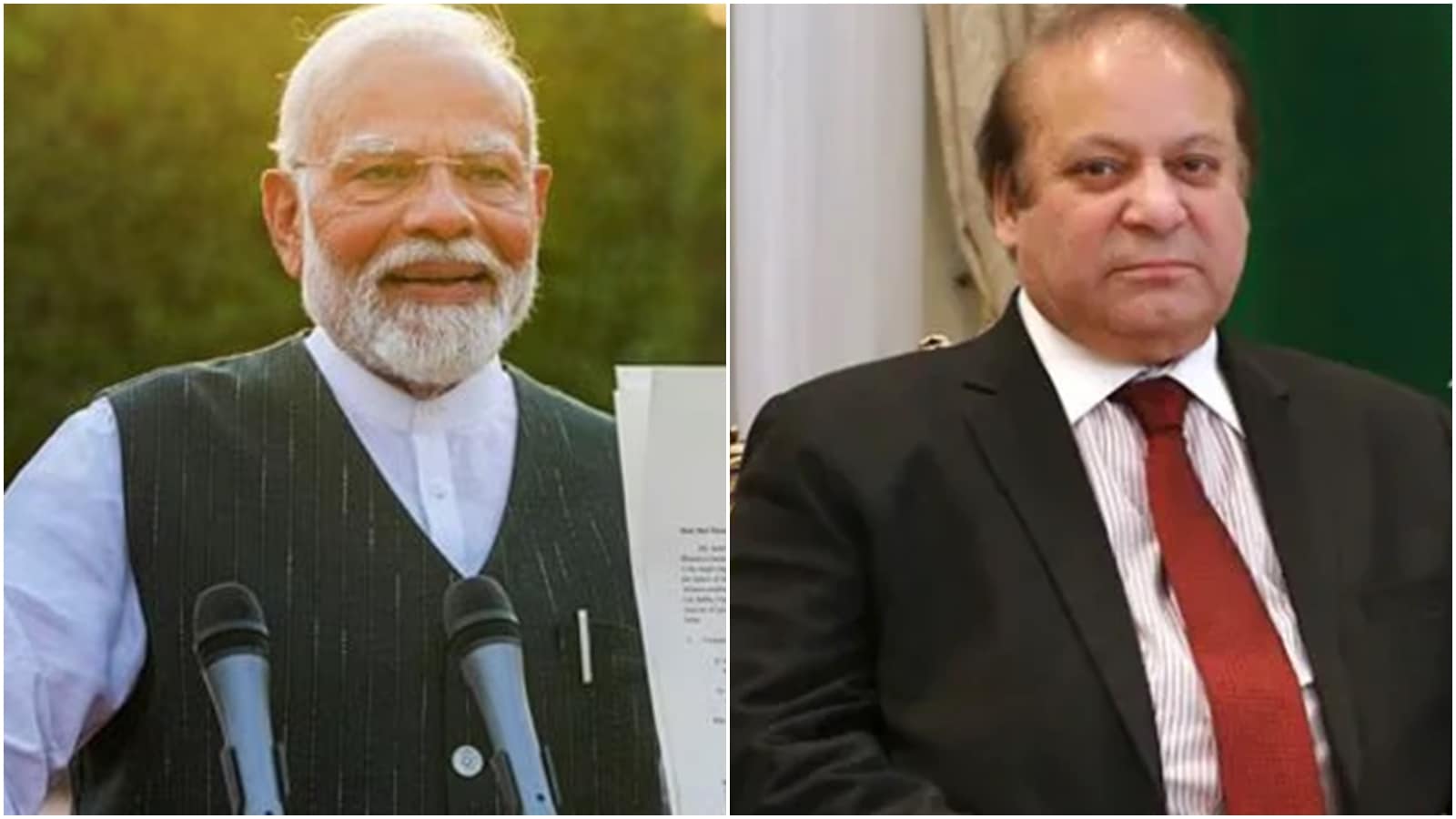A day after the NDA government’s council of ministers were sworn in, Pakistan’s top leader and former Prime Minister Nawaz Sharif, who heads the ruling PML(N), reached out to Prime Minister Narendra Modi and said that the BJP’s “success in recent elections reflects the confidence of the people in your leadership”.
“Let us replace hate with hope and seize the opportunity to shape the destiny of the two billion people of South Asia,” he posted on X.

Modi replied in about two hours, saying that “the people of India have always stood for peace, security and progressive ideas”, and that “advancing the well-being and security of our people shall always remain our priority”. His emphasis on “security” is a message to Nawaz that countering terrorism is a top priority.
Earlier, Nawaz Sharif’s younger brother Shehbaz Sharif, who is Pakistan’s PM, had posted on his social media account, “Felicitations to @narendramodi on taking oath as the Prime Minister of India.” To which, the PM replied, “Thank you @cmshehbaz for your good wishes.” This one-line exchange was reminiscent of how Modi had wished Shehbaz in March this year, when he became the Prime Minister.
In recent months, the Sharifs have been reaching out to India through positive statements.
On May 30, as the elections drew to a close, Nawaz had admitted that Pakistan had “violated” the 1999 Lahore Declaration agreement with India, which was signed by him and then Indian Prime Minister Atal Bihari Vajpayee. Indirectly referring to the Kargil misadventure by General Pervez Musharraf, he said, “It was our fault.”
Responding to questions on this comment, the Ministry of External Affairs’ official spokesperson Randhir Jaiswal had also been positive: “You are aware of our position on the issue. I need not have to reiterate that. We note that there is an objective view emerging in Pakistan as well on this matter.”
Story continues below this ad
While this was not a substantive response from Delhi, the fact that South Block did not make a sharp comeback was seen as an important signal.
The change of government and the return of the Sharif family in power in March this year — after a bitterly contested election that led to questions of legitimacy due to large-scale rigging — had raised hopes of engagement between the two countries.
On April 18, in what was seen as the first major outreach from the Pakistan establishment led by the Sharifs, Pakistan’s Punjab Chief Minister Maryam Nawaz had quoted her father Nawaz as saying, “don’t fight wars with neighbours” and “open the doors of friendship”.
Maryam, seen as the heir apparent in the Sharif family, had made a strong pitch for improvement of ties while speaking to about 3,000 Indian Sikh pilgrims at Kartarpur Sahib.
Story continues below this ad
In an almost 10-minute speech in Punjabi and Urdu, she had invoked her family’s roots from a village in India, bonds between people of the two Punjabs across the India-Pakistan border, maintaining the dignity of Sikh minorities in Pakistan, and appointing the first Sikh minister in Pakistan. She shared her plans to develop the place around Kartarpur Sahib for pilgrims’ stay and called for investments from Sikhs around the world.
New Delhi had viewed this speech as a positive gesture and a broader signal to India from the daughter of the patriarch of the current political establishment. Delhi viewed that her statements had Nawaz Sharif’s imprimatur, particularly since she repeatedly invoked his government.
Prime Minister Narendra Modi had invited Nawaz, the then Prime Minister of Pakistan, as part of the SAARC countries for his swearing-in ceremony in May 2014. But the terror attacks in Pathankot and Uri had derailed the engagement process.
Both sides have not posted High Commissioners in each other’s capitals since 2019, after the abrogation of Article 370 granting special status to Jammu and Kashmir. However, the two sides have more or less adhered to the ceasefire along the Line of Control since February 2021.
Story continues below this ad
Pakistan was not invited for the swearing-in ceremony in 2019 or this time.









